Most Chechens think that Maskhadov’s death will result in an "outburst of violence" in ChechnyaGROZNY INHABITANTS REACTIONS TO MASKHADOV'S DEATH: ANXIETY AND PESSIMISM
Results of a sociological survey conducted in recent days among the people of Grozny by the Czech-based Internet news agencies, Caucasus Times and Prague Watchdog showed that for a vast majority the expected consequences from the death of Chechen resistance leader and Ichkerian President Aslan Maskhadov are a source of anxiety and pessimism in that further escalation of violence in Chechnya is possible.
According to the results, 75% of respondents think that Maskhadov’s death will result in an "outburst of violence" in Chechnya, whereas only 4% believe it raises hopes for a decrease in violence.
In response to the question about how Maskhadov's death will impact on the Chechen resistance, 49% said it will "boost the positions of the radicals." Only 8% think that the incident will "split the resistance", while 5% feel it will "weaken the resistance as a whole." A large part of those interviewed (38 %) refused to answer the question. Mostly women were unable to take a position on this issue.
Among the most effective measures mentioned that would enable stopping the war was "the withdrawal of Russian troops from Chechnya" (43%); "the presence of UN peacekeepers in Chechnya" (42%); "fighting the resistance leaders" (33%); and "holding talks with the resistance leaders" (31%).
A large majority of respondents (93 %) indicated that the main reason for the ongoing war was "military operations." However, a considerable number think that the main reason is "guerrilla operations" (32 %) and "social and economic problems" (29 %).
As far as the residents' main sources of information are concerned, television has a comfortable lead (75 %), with radio as second (25 %), followed by the Internet (21 %) and the newspapers (15 %). The Internet is especially popular with the male population.
The question about which Internet sites best cover the situation in Chechnya objectively, showed there was a high degree of distrust for the Russian regional websites as well as the federal ones; thus these sites only received 1% each for being objective. 49% said that the foreign Internet sites covering the situation in Chechnya are the most objective. Half of the respondents (50%), mostly women, refused to answer this question.
Note: The poll was conducted on March 11-15 in Grozny and included 150 people aged 16 and over. Two or more answers were allowed for some questions.
Charts (answers are in per cent):
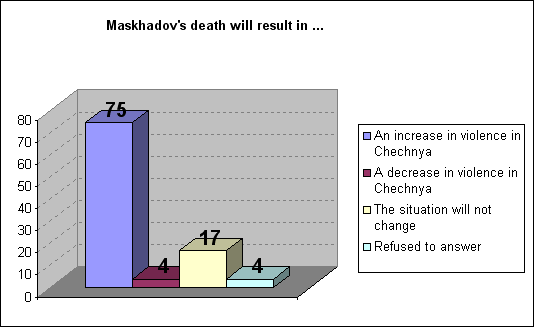
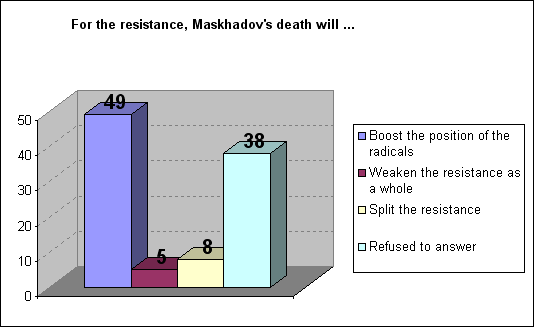
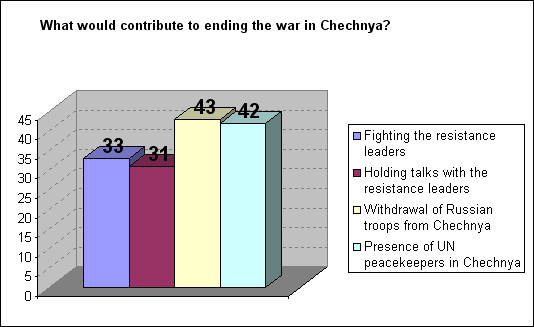
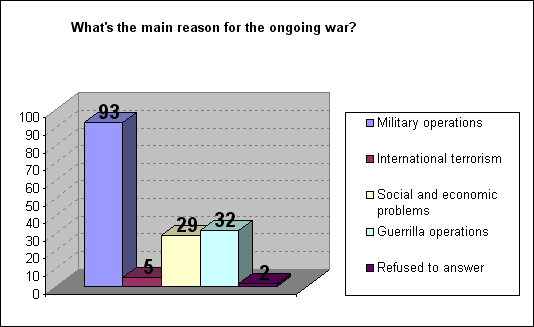
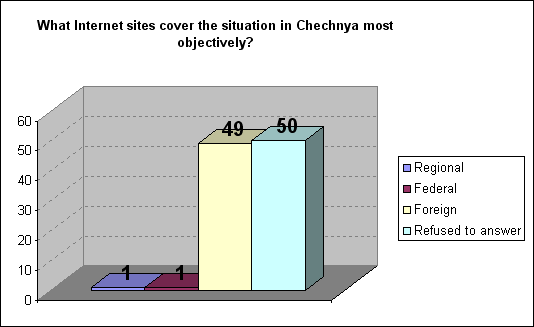
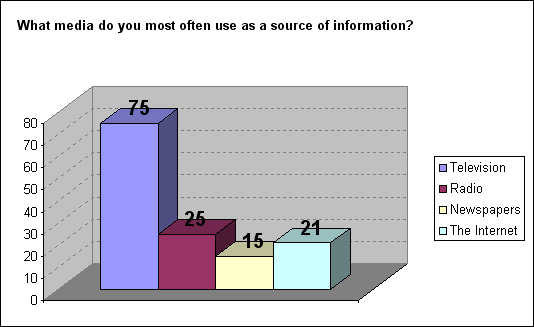
Translated by Prague Watchdog.
(T/E)
DISCUSSION FORUM
|

